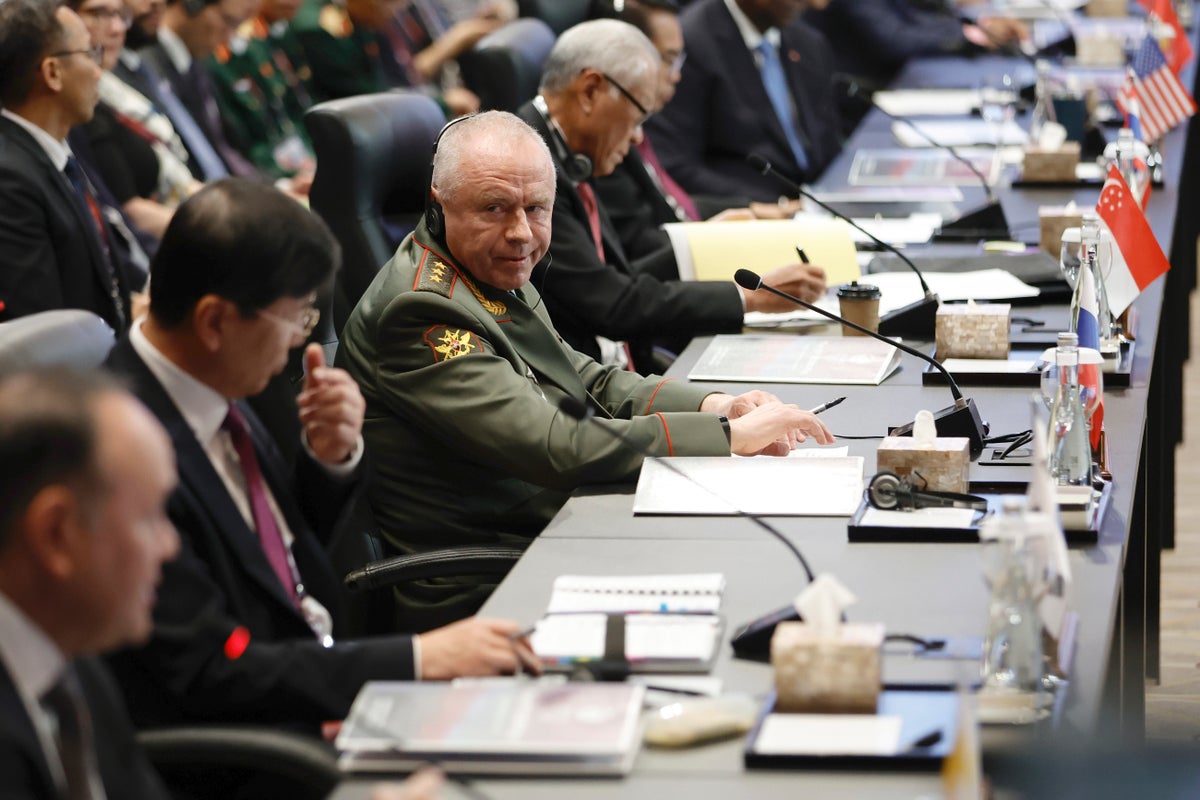
Southeast Asian defense ministers expressed “profound concern” on Thursday over the loss of civilian lives in the Israel-Hamas war and called for an immediate truce and creation of a humanitarian corridor to deliver aid.
In a statement on the conflict, the defense ministers from the Association of Southeast Asian Nations also supported the start of peace negotiations aimed at achieving a “two-state solution based on the pre-1967 borders.”
The ministers “expressed profound dismay at the reported attacks and loss of innocent civilian lives in the conflict, along with the destruction of civilian infrastructure,” it said.
They issued the statement after meeting in Jakarta, Indonesia, with eight “dialogue partners,” including the United States, China and Russia.
A separate chairman's statement issued by Indonesian Defense Minister Prabowo Subianto called for an immediate, durable and sustained humanitarian truce leading to a cessation of hostilities and urged both sides to respect the sanctity of life and property.
It said the protection of all civilians, including ASEAN citizens, “must be prioritized in times of conflict,” and all hostages must be released immediately and unconditionally.
The statement urged the United Nations Security Council to take a more active role in averting a wider humanitarian disaster.
“We encourage all efforts to immediately stop violence there,” Subianto said at a news conference. “We ask all countries that have power to use their influence to immediately stop actions against innocent people, against unarmed civilians who are non-combatants, women and children.”
U.S. Defense Secretary Lloyd Austin, Russian Vice Defense Minister Alexander Fomin and Jing Jianfeng, China’s deputy chief of staff at the Central Military Commission joined in the talks with the ASEAN defense ministers, but there were no separate meetings among them.
Indonesia, Southeast Asia’s largest economy, is this year’s ASEAN chair.
The 10-nation grouping includes Myanmar, but its defense minister was again barred from attending this week’s meetings due to the military government’s failure to comply with a five-point ASEAN peace plan drafted to ease the country's crisis.
The ASEAN defense ministers agreed to sign cooperation agreements with their eight dialogue partners in the areas of maritime security, counterterrorism, humanitarian assistance, disaster management and peacekeeping operations, Subianto said.







